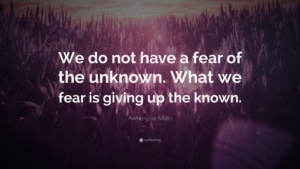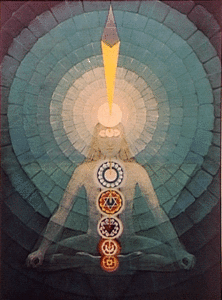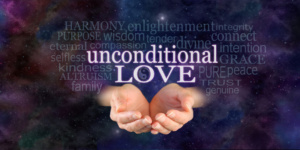Detachments & Attachments:
Survival or Service?
Releasing our detachments has been a spiritual way of looking at things for some time now. Many refer to it from a Buddhist perspective. Why do people get so attached to their beliefs and the things i n their lives? Usually, it’s because of the fear of what is on the other side. Every living being clings to what it knows, because the fear of the unknown produces insecurity, doubt, and makes one go back to business as usual, falling into the same clutches of the subconscious over and over again, whether or not it is for our best interest. When one is used to living in the shadows, the Light of consciousness can seem blinding, like when we wake up and our eyes need time to adjust to the bright light of the day. We need the time to adjust our eyes so we don’t damage them.
n their lives? Usually, it’s because of the fear of what is on the other side. Every living being clings to what it knows, because the fear of the unknown produces insecurity, doubt, and makes one go back to business as usual, falling into the same clutches of the subconscious over and over again, whether or not it is for our best interest. When one is used to living in the shadows, the Light of consciousness can seem blinding, like when we wake up and our eyes need time to adjust to the bright light of the day. We need the time to adjust our eyes so we don’t damage them.
Some take a long time getting lost in the illusions of this holographic universe and planet that prevent one from seeing the truth, while others cling to the shadows and close the curtains again, taking longer to adapt step by step. There is no judgment here as we all have our own pulse; our own rhythm. No one can force anyone unless one has decided to be at the Service, which becomes a Duty. Service comes from the heart, and cannot be forced, but must be carried out with responsibility.
When we can understand where we came from, we can understand better where we are going. Obligor comes from the Latin “ob-ligare”, that is, to be bound and “tied against another”. Responsibility comes from the Latin”to have the ability to respond”, and invites us to take action based on what one knows and has.
us to take action based on what one knows and has.
Service comes from the Indo-European “serw”, which means to protect: “pro-teg”, (to put a roof on something; to cover it). There are two ways that people are in Service: the first is the Service of Survival. The second is at the Service of Transcendence.
Service of Survival
Service of Survival is what we know as the word “Attachment”. In our world of consciousness and spirituality, the concept that we know is having attachment to things, which refers to the fact that we have a lot of esteem, affection, and appreciation for something. And when we  think about leaving it or letting it go, that becomes unthinkable for us. So, the idea of Detachments is about letting things go and not clinging to anything. However, most of the time this is also confused with Abandonment, which is to put aside or “changing discourse” (from Indo-European “bha”, which is “speaking”). This means that detachments today are confused with the change of discourse where a person, instead of taking responsibility for what they have become attached to, simply decides to let it drift, sink into the shadow self in denial, and abandoning it. Detachments or becoming detached can also be seen as the idea of shedding all emotional and material ties in order to feel free and liberated.
think about leaving it or letting it go, that becomes unthinkable for us. So, the idea of Detachments is about letting things go and not clinging to anything. However, most of the time this is also confused with Abandonment, which is to put aside or “changing discourse” (from Indo-European “bha”, which is “speaking”). This means that detachments today are confused with the change of discourse where a person, instead of taking responsibility for what they have become attached to, simply decides to let it drift, sink into the shadow self in denial, and abandoning it. Detachments or becoming detached can also be seen as the idea of shedding all emotional and material ties in order to feel free and liberated.
Attachment comes from the Indo-European “pei”, which means “fat, milk fat”, which gives rise to the Latin “pix”, which is a substance that gives rise to the word “black Fish”, which is not an animal, but a secretion that is thick, oily and greasy tar, which was used to smear inside of drinking boots. So, attachments are like something that is stuck with tar. This “fat” was not a negative thing, nor was “black fish” or tar. In our history, something greasy, someone obese actually reflected wealth, fertility, stability, and security, along  with nutrition and beauty. While something greasy implied the ability to retain and accumulate wealth and food and provide security and protection under a roof.
with nutrition and beauty. While something greasy implied the ability to retain and accumulate wealth and food and provide security and protection under a roof.
Attachment refers to protection, survival security, and being in the comfort zone; feeling comfortable, healthy, and cared for by someone. Attachments bring the memory of what makes us feel calm, alive, and survive; clinging to life as the only way of escape; “permanence”.
In the English language, “Attachment” comes from the Indo-European word “steg”, which refers to “stake”, like a stick where things are affirmed and security and stability are held and manifested. Every living biological and cultural organism seeks stability and security; every human and animal does this to find the feeling of calm where things are predictable, routine; where we find comfort in our attachments. The great conflict here is the dependence on this type of security, and the belief that it is the only way or The Way.
Service of the Transcendence
I find this very interesting as this etymological root that helps us to understand that the same word “pei”, which in Latin we say “pix – picis”, gives rise to the Attachment (ad-picare), which is the root of “pitutia” (sticky mucus), which gives rise to the name of the gland Hypophysis (in Greek: below growth, that is, development), in Latin: “Pituitary”, which is a Crown Chakra gland that produces DMT.
Hypophysis (in Greek: below growth, that is, development), in Latin: “Pituitary”, which is a Crown Chakra gland that produces DMT.
This gland allows us to open the eyes of the cosmos to see beyond the “physis” of the forms of what we know, and to understand what lies behind; what no longer tarnishes things, but what connects things. The Network. This is where we find the concept of Detachment.
Detachment is the Service of Transcendence where we stop thinking about protecting life and begin thinking about protecting existence. Existence encompasses much more than just outside of human life. It goes to the connection between all things, through time and space without limits. Detachment doesn’t imply leaving the bonds of matter, yet understanding that it is impossible to leave them as we are part of everyone, yet not attached to anyone, but connected to each one as a fabric. We do not belong to one, but we are everything. So, an activated and healthy pituitary gland allows us to see the unity in things, putting ourselves at the service of what was, is, and always will be, without the need to cling to what is.
Detachment is where we can wake up to see more broadly the role of life in existence, where we no longer depend on life but also do not separate ourselves from it. We do not abandon it, but we do take care of it, protect it and drive it to develop and evolve. Detaching is not about letting go, but about unconditional love without limits and understanding our eternal capacity to transform.
Take a moment and think of all the things that hold you back, like standing on tar; all of the things we become attached to in life that we serve with the need to survive. What are the things that you fear to change and transform so you can feel safe? Even when you know it’s false security. It is then that one can recognize: Have you been responsible for what you have detached from? Are your detachments balanced or just abandon reactions? Become aware of both, as neither one will lead you to real freedom in your own authentic selves.
So, where can we find our true freedom? In the amazing celebration of enjoying things while  they last and taking responsibility for them with Love; celebrating the moment when they transform to continue their own course of evolution and expansion. This is where we shall discover our true freedom; right smack dab in the middle of Attachment and Detachment! We Shall discover our true Freedom in the Unconditional Love of Consciousness.
they last and taking responsibility for them with Love; celebrating the moment when they transform to continue their own course of evolution and expansion. This is where we shall discover our true freedom; right smack dab in the middle of Attachment and Detachment! We Shall discover our true Freedom in the Unconditional Love of Consciousness.
